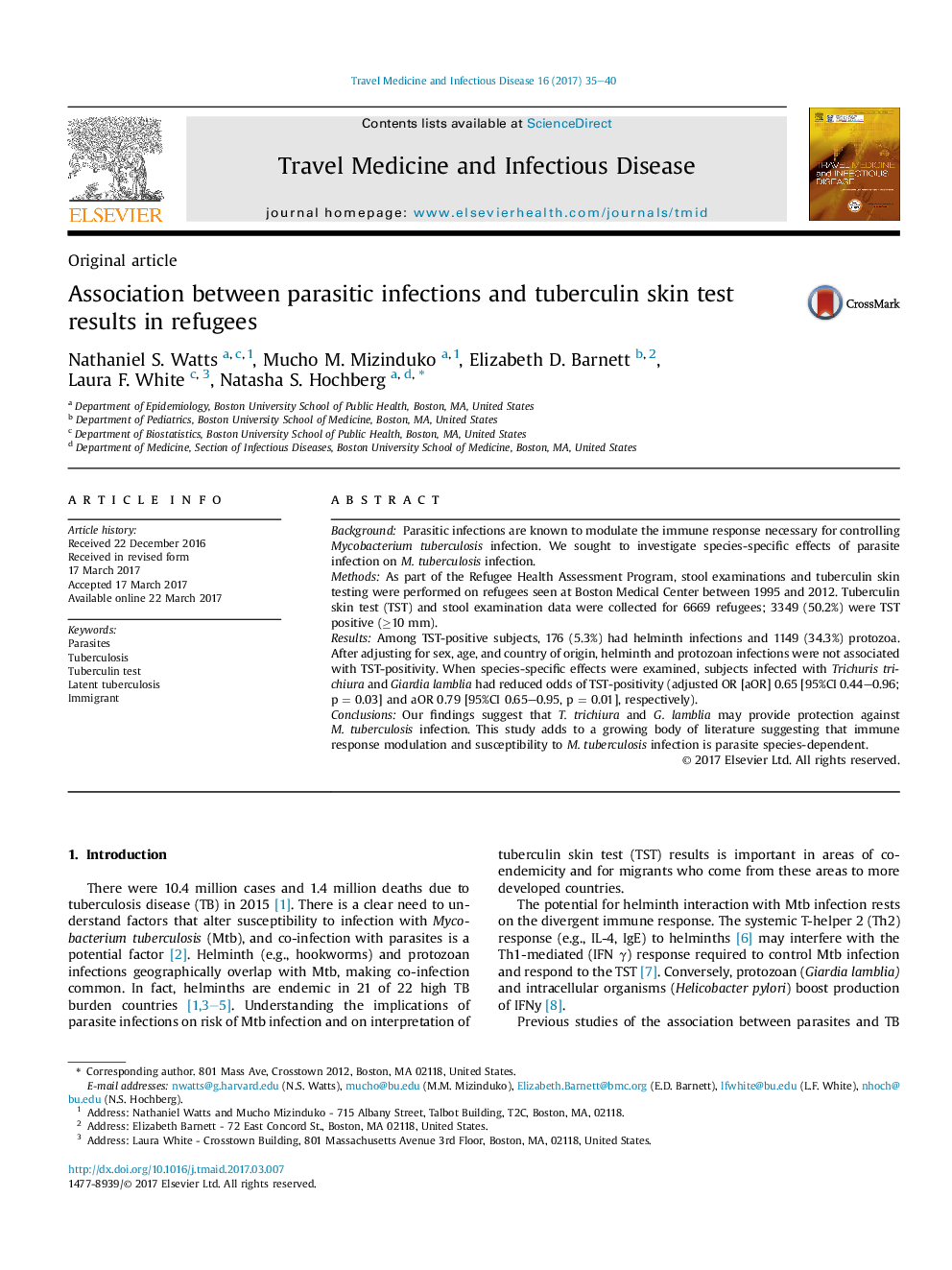| Article ID | Journal | Published Year | Pages | File Type |
|---|---|---|---|---|
| 5670497 | Travel Medicine and Infectious Disease | 2017 | 6 Pages |
BackgroundParasitic infections are known to modulate the immune response necessary for controlling Mycobacterium tuberculosis infection. We sought to investigate species-specific effects of parasite infection on M. tuberculosis infection.MethodsAs part of the Refugee Health Assessment Program, stool examinations and tuberculin skin testing were performed on refugees seen at Boston Medical Center between 1995 and 2012. Tuberculin skin test (TST) and stool examination data were collected for 6669 refugees; 3349 (50.2%) were TST positive (â¥10 mm).ResultsAmong TST-positive subjects, 176 (5.3%) had helminth infections and 1149 (34.3%) protozoa. After adjusting for sex, age, and country of origin, helminth and protozoan infections were not associated with TST-positivity. When species-specific effects were examined, subjects infected with Trichuris trichiura and Giardia lamblia had reduced odds of TST-positivity (adjusted OR [aOR] 0.65 [95%CI 0.44-0.96; p = 0.03] and aOR 0.79 [95%CI 0.65-0.95, p = 0.01], respectively).ConclusionsOur findings suggest that T. trichiura and G. lamblia may provide protection against M. tuberculosis infection. This study adds to a growing body of literature suggesting that immune response modulation and susceptibility to M. tuberculosis infection is parasite species-dependent.
